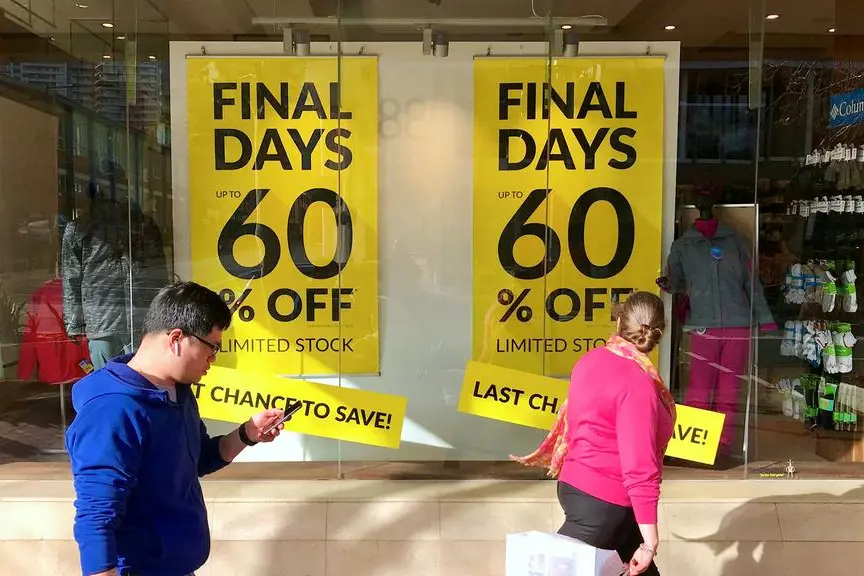PHOTO
Australian retail sales rose at the fastest pace in eight months in September, suggesting some resilience in consumer spending which would add to the case for an interest rate hike as soon as next week.
The Australian dollar rose 0.4% to $0.6360, while three-year government bond yield hit a fresh 12-year high of 4.388%. Markets leaned further into bets that the Reserve Bank of Australia will hike by a quarter-point in November, with a 61% probability, up from 58% before.
Data from the Australian Bureau of Statistics (ABS) showed on Monday that nominal retail sales rose 0.9% in September from August, better than analysts' expectations for a 0.3% increase and an upwardly revised gain of 0.3% for August.
Sales of A$35.9 billion were up 2.0% from a year earlier, picking up for the first time since August last year when the annual gains peaked at almost 20%.
Ben Dorber, ABS head of retail statistics, said a diverse range of factors drove the September results.
"The warmer-than-usual start to spring lifted turnover at departments stores, household goods and clothing retailers, with more spending on hardware, gardening, and clothing items," said Dorber.
He added that the release of a new iPhone model and the introduction of the government rebate program in Queensland to save energy consumption also helped with spending on household goods.
Over the quarter, the resilience in consumers meant that retail volumes have avoided an outright decline, with analysts expecting a gain of 0.2% to 0.3% in the three months to September, a result that bodes well for economic growth.
"For the RBA, we don't think the November decision will turn on one monthly retail number, but today’s data is one more piece of evidence that the consumer remains resilient," said Taylor Nugent, a senior markets economist at National Australia Bank.
"Downside risks to household consumption have been a key focus of the RBA, but those do not look to have been realised so far."
Rates have risen by 400 basis points and have added hundreds of dollars to monthly mortgage payments. The broad softening in consumer spending has been one major reason that the RBA has left interest rates unchanged for four straight months now.
However, a sustained rebound in housing prices could lend some support to household consumption. Domain, a real estate website, predicts that the housing market is set to fully recover from the recent downturn by the end of this year. (Reporting by Stella Qiu; Editing by Tom Hogue and Edwina Gibbs and Miral Fahmy)





















